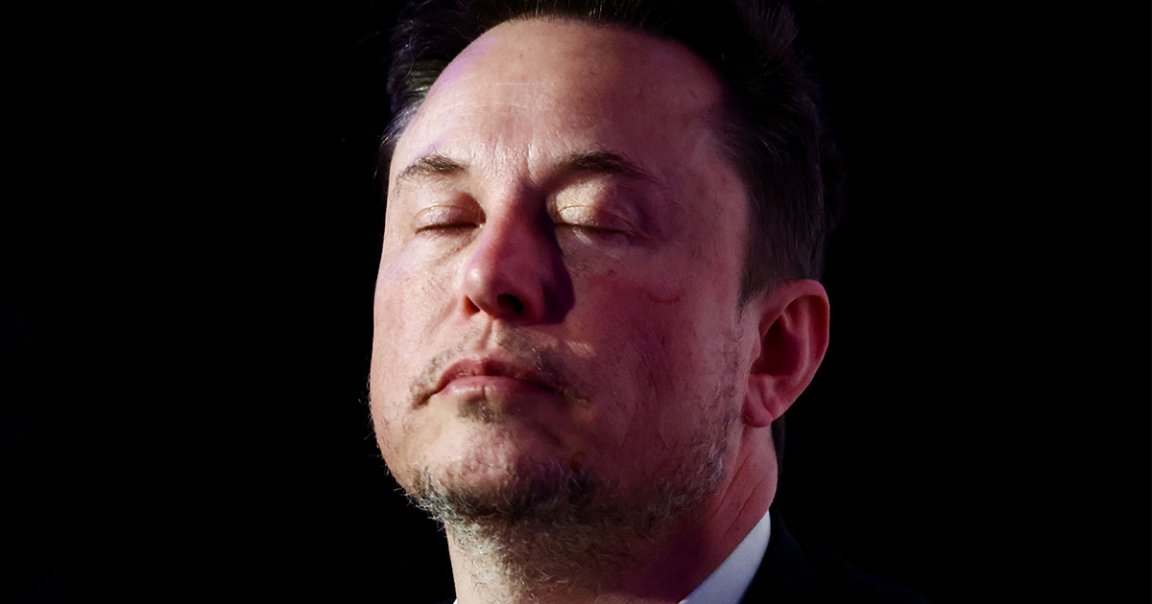
A Delaware judge has voided Tesla CEO Elon Musk’s gargantuan $55 billion pay package following a lawsuit by shareholders claiming it was far too much wealth to award a single individual.
In a ruling this week, Delaware judge Kathaleen McCormick called the billionaire’s cushy compensation plan “an unfathomable sum,” arguing it was unfair to shareholders.
Uncontested, the decision could leave a massive gap in the net worth of the once richest man in the world, which could have a ripple effect on his other ventures, including SpaceX and his online echo chamber X-formerly-Twitter.
McCormick’s ruling also highlights the long-standing rift between some of Tesla’s shareholders and the company’s mercurial and unpredictable CEO, who has consistently been embroiled in controversies over the last couple of years. That relationship has steadily worsened, especially following Musk’s chaotic acquisition of Twitter, which forced him to dig deep into his pockets and sell off billions of dollars worth of Tesla shares.
The payout dates back to 2018, when Tesla reached a ten-year agreement with Musk. At the time, Tesla calculated the package to be worth around $2.284 billion, considering the company’s 2018 share value.
Since then, Tesla has had several blockbuster years, with shares hitting record highs in 2021. The scale of the pay package today is off the charts. According to Reuters, it’s the biggest of its kind in US corporate history.
Forbes now lists Musk’s net worth as just $183.4 billion, with $55.8 billion representing around 30 percent of that.
“If this ruling stands, it will put a sizable dent into his net worth,” University of California, Berkeley law professor Adam Badawi told Reuters. “I think essentially what the court is saying is like, ‘Look, we’re not literally taking money out of Elon Musk’s pocket,’ although he certainly will feel that way because he hasn’t exercised shares.”
Musk, for his part, is seething.
“The most salient point that was missed was that the shares could not be sold for five years after exercise of the options,” Musk tweeted , “making it impossible to ‘exercise and run.'”
Experts are expecting Musk to fight the decision in court.
“He may appeal because he has little to lose from appealing,” Columbia law professor John Coffee told Reuters. “I would not expect the [Delaware Supreme Court] to reverse the chancellor but it certainly could happen.”
As Bloomberg points out, Tesla’s board could also simply choose to come up with a new pay package.
The move couldn’t have happened at a worse time for Musk. Tesla recently disappointed shareholders by failing to hit targets in Q4 of 2023.
Musk was also accused of “blackmailing” Tesla shareholders by threatening to pursue other AI ventures “outside of Tesla” unless he got a 25 percent voting control, a 12 percent increase.
“I don’t want to control it, but if I have so little influence at the company at this stage, I could be voted out by some random shareholder advisory firm,” he argued during a recent earnings call.
As expected, Musk is fuming at the judge’s decision and is letting out his frustrations on his social media platform.
“Never incorporate your company in the state of Delaware,” an incensed Musk tweeted , before releasing a barrage of angry messages about immigration and other pet political issues.
More on Musk: Here’s What Happened to Monkeys That Got the Neuralink Implant